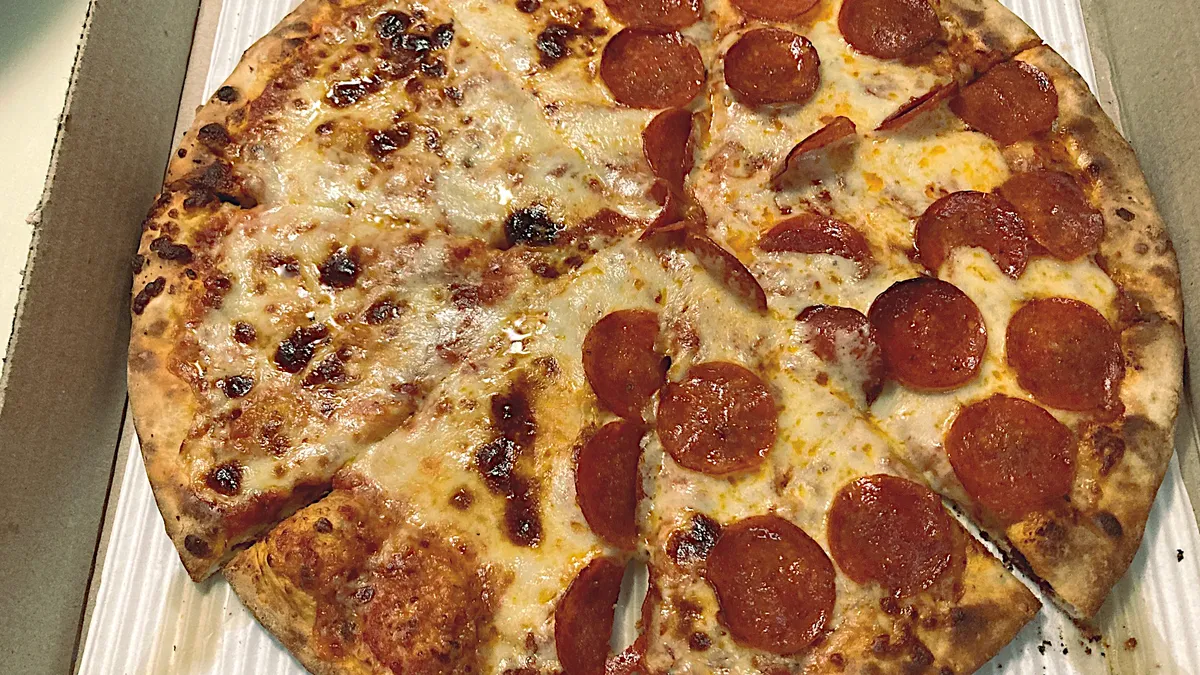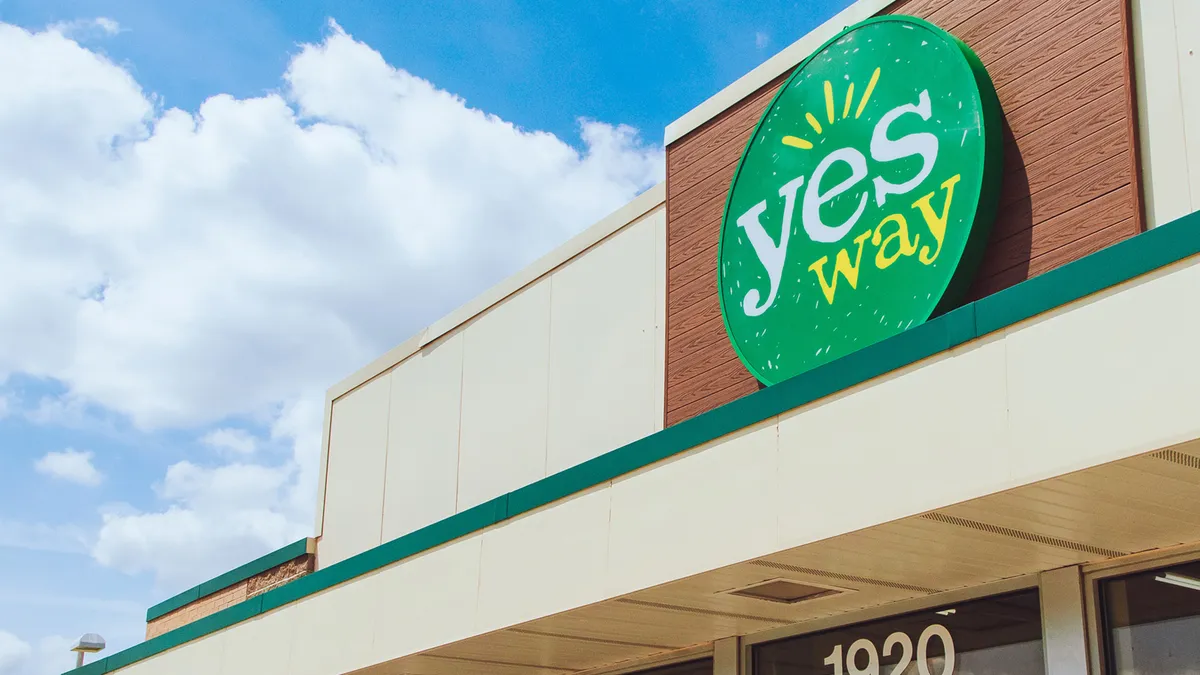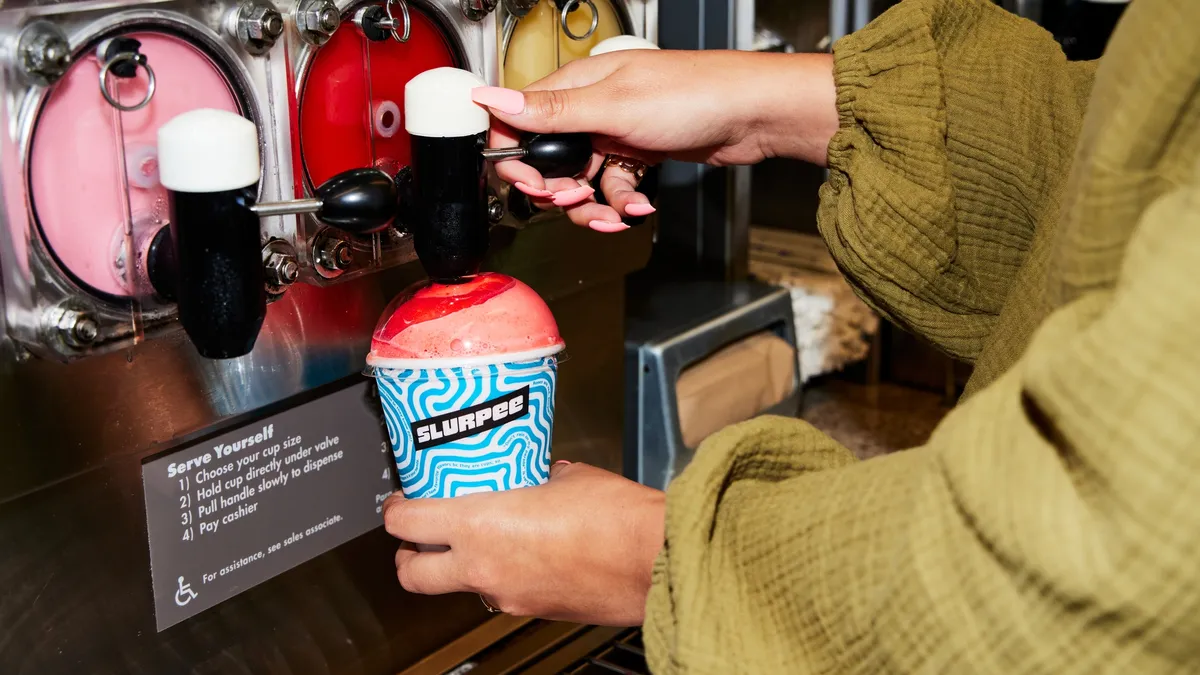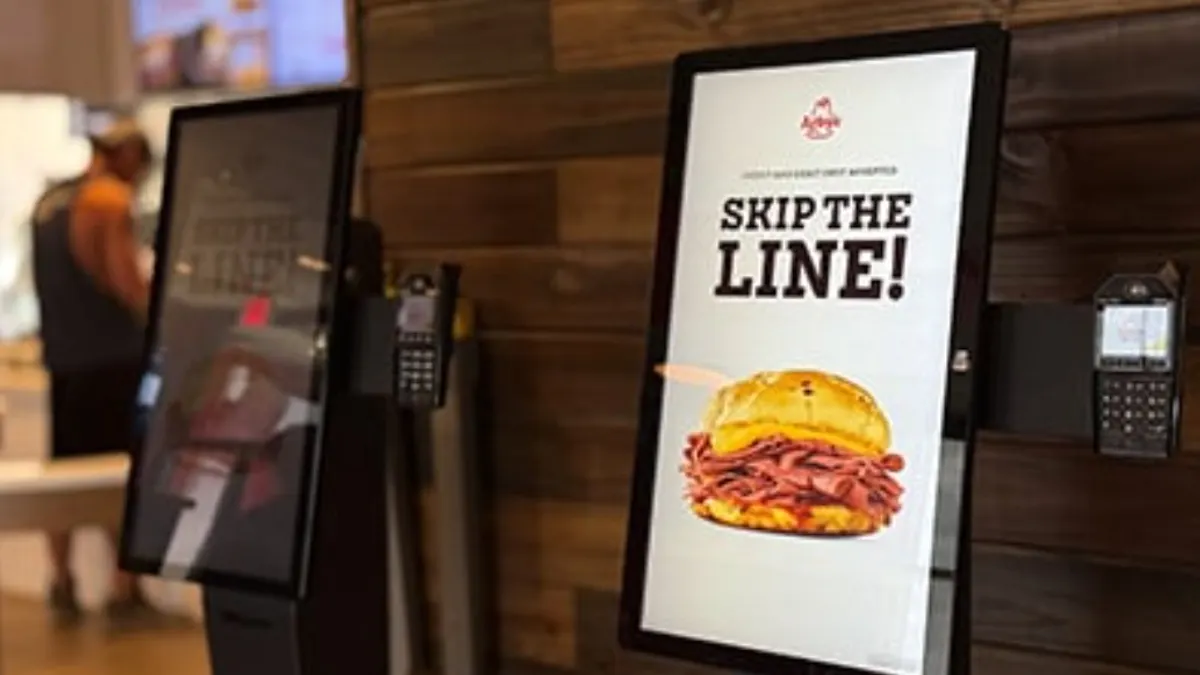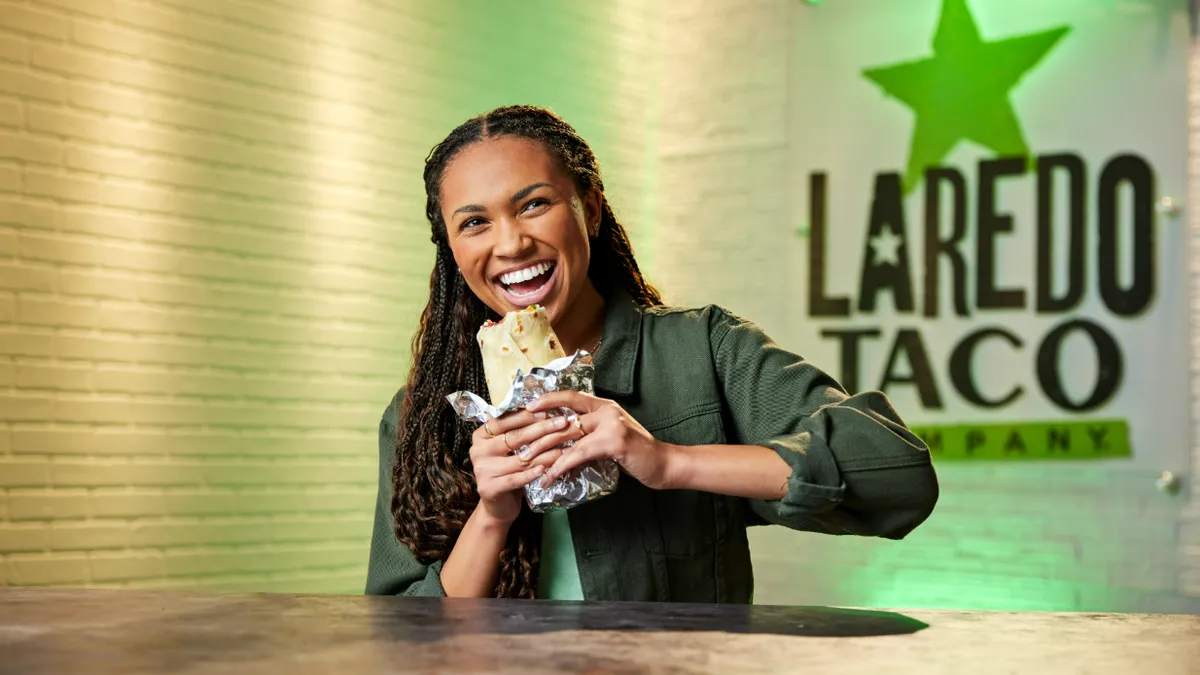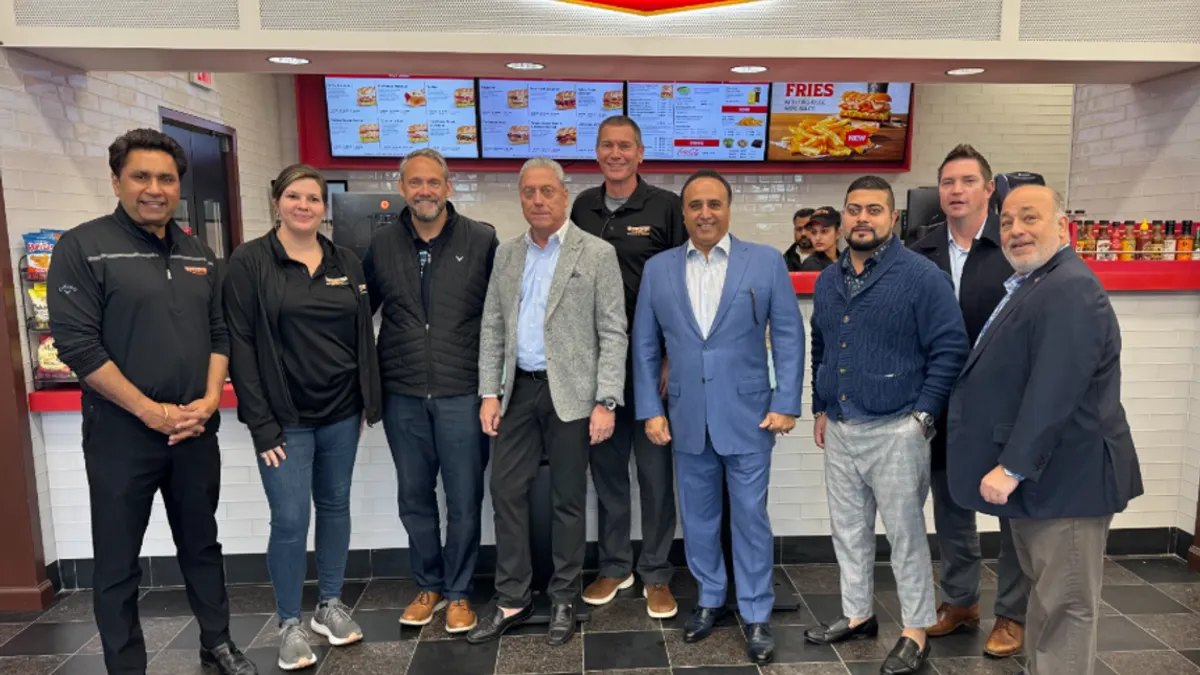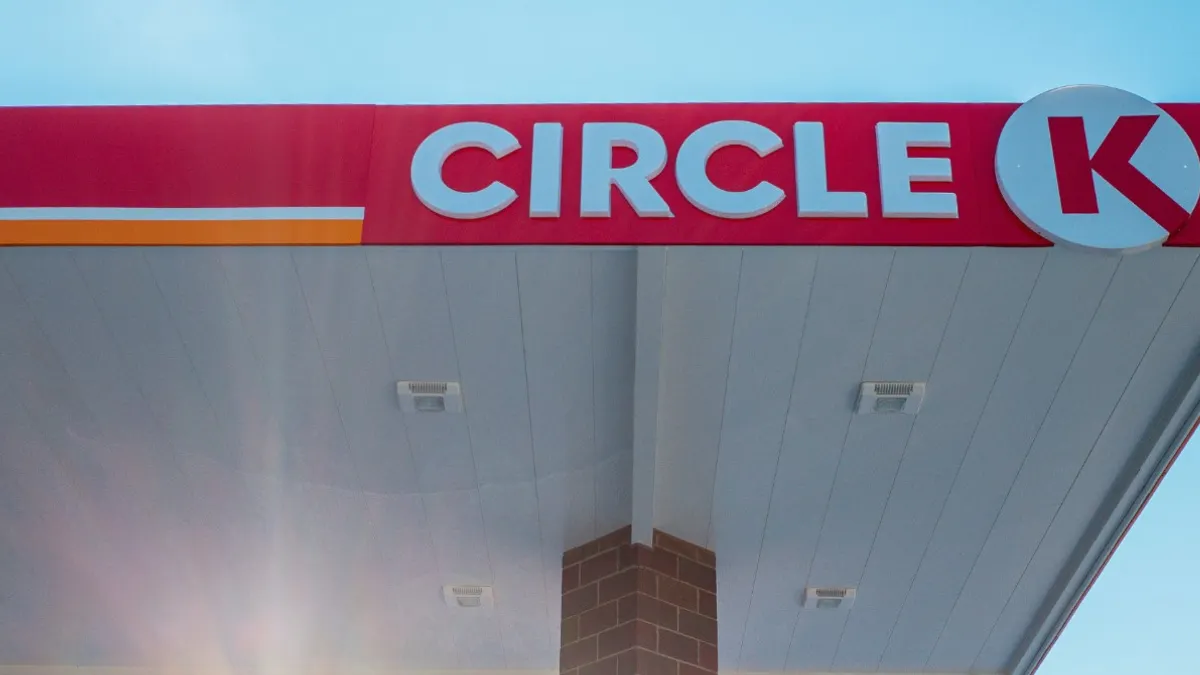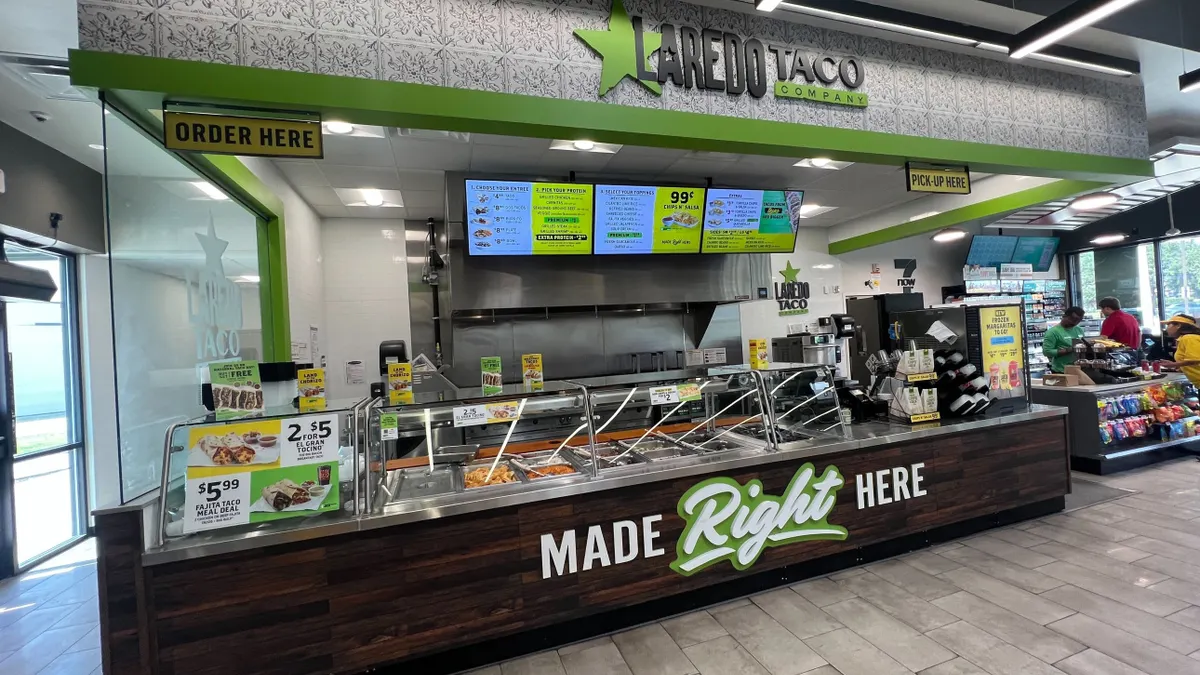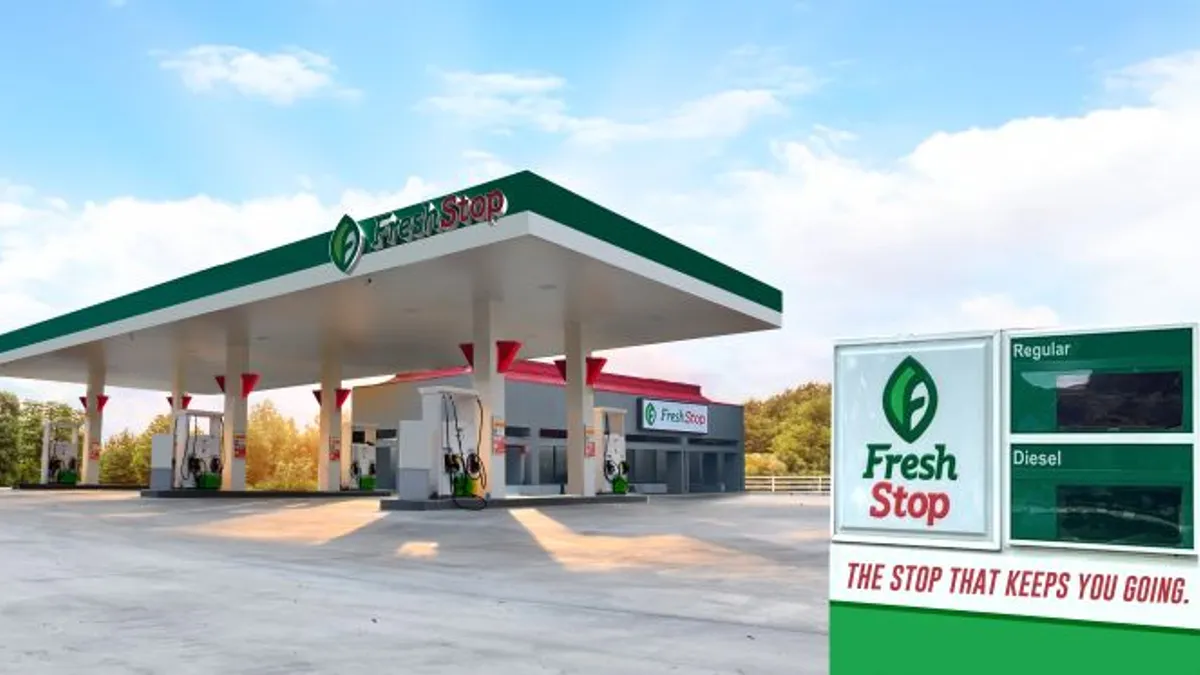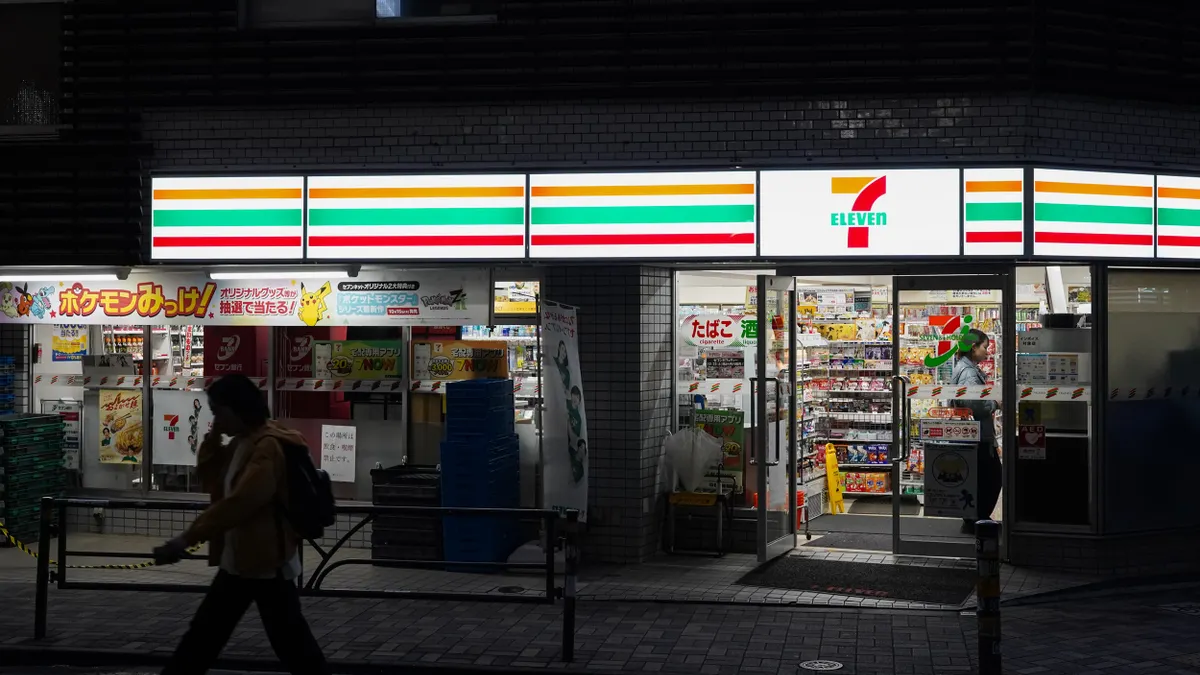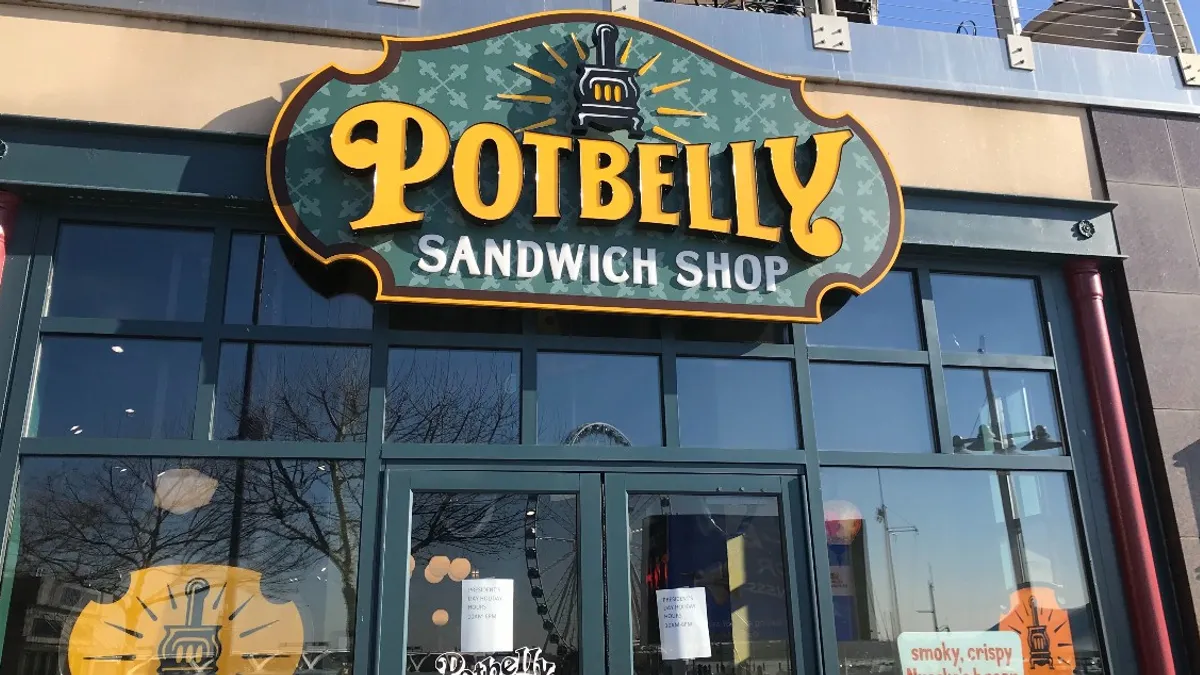Fueling Up is a column from C-Store Dive offering a fresh perspective on the top news and trends in the convenience store industry.
Few events grabbed the attention of both the c-store industry and consumers this year more than when Wawa threw its hat into the pizza ring.
The Pennsylvania-based retailer, known more for its hoagie sandwiches and cheesesteaks than its fuel rewards or beverage offerings, added pizza to its dinner menu in June after “years” spent working on the recipe, the company said at the time. It comes in several varieties, including plain, pepperoni, sausage, mushroom and veggie.
If Wawa had worked on its recipe for a week, I’d expect the pizza to be subpar. But “years” means it should be at least half decent, right?
Wrong, according to several media outlets.
Over the past few months, publications like The Washington Post, Eater and Bon Appetit have scorched Wawa’s pizza with horrifying reviews.
“Wawa’s new pizza is edible, but an utter disappointment — a sloppily assembled pie with bland toppings and a dry basic crust,” Ernest Owens, editor for Eater Philly, wrote in his review of the pie.
Owens noted that the “uninspiring” pizza at 7-Eleven — which pizza maven and Barstool Sports founder Dave Portnoy rated a 3.8/10 in 2021 — “outshines” Wawa’s pies.
Even local media in New Jersey, where Wawa operates nearly 300 stores, is burning Wawa’s pizza to a crisp.
“Wawa, I love you, but your new pizza is trash,” Jeremy Schneider, food and culture reporter for NJ.com, wrote in his scathing review.
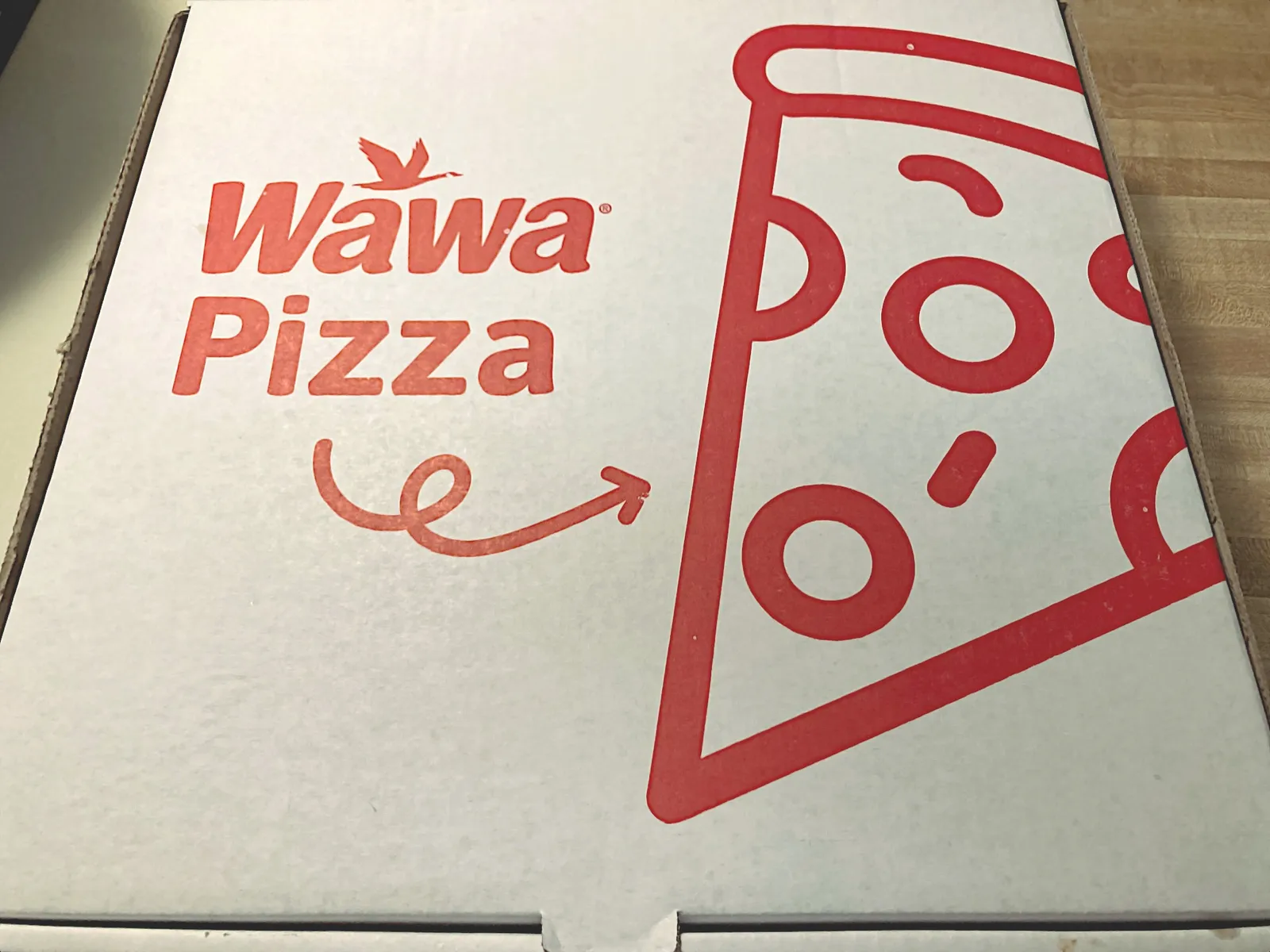
A particularly harsh review written by Danny Palumbo in The Takeout compared Wawa’s pies to those of Casey’s General Stores, which has become the c-store most synonymous with pizza through the years.
“It’s missing the thoughtfulness and superb flavor of a Casey’s pizza,” Palumbo wrote. “In fact, it tastes like something Wawa rushed out just to stay ahead of the curve.”
Even consumers are bashing Wawa’s pizza. When The Philadelphia Inquirer conducted a taste test with five 11th graders in the Philadelphia area, near Wawa’s home base, none were huge fans to say the least. Multiple students noted how the pizza was burnt, had too much cheese and tasted like a “cheap pizza.”
Not everyone hates Wawa’s pizza. Jason Sheehan of Philadelphia Magazine defended Wawa’s pies, noting that consumers need to keep their expectations in check and not compare this pizza to that of established restaurants.
“What did you think you were going to get?” Sheehan wrote. “Because before you go getting all high and mighty about it, let’s not forget: You’re eating pizza from a gas station.”
I disagree. Wawa has stated in the past that it views itself as more of a restaurant than a convenience store. Its CEO, Chris Gheysens, even referred to its brand as a “restaurant-to-go.”
If the company views itself as a restaurant, its food better be restaurant quality.
These harsh reviews have left me wondering: What the heck is going on? Is Wawa’s new pizza actually terrible, or is it just not as otherworldly as its hoagie sandwiches? Is Casey’s paying off The Washington Post and Eater to publicly assault Wawa’s pies?
More importantly, can Wawa — and its pizzas — bounce back from this negative press? And what can other c-store retailers learn from this experience?
Should Wawa pull its pizza from the menu?
One reason Wawa is in this situation to begin with is because pizza is “a really hard category” to get into, Liza Salaria, senior principal consultant and category management and foodservice practice lead for c-store consultancy Impact 21, said in an interview.
While items like breakfast sandwiches have consistent ingredients across the board — eggs, a slice of cheese and an English muffin — pizza is more personal, requires more uniqueness and carries higher expectations for quality for everything from the sauce to the types of cheeses, crust texture and more, Salaria noted.
And if pizza isn’t eaten immediately, “it can get kind of crappy,” she said.
Salaria lives in Philadelphia. She said the consumers in the area have “major expectations” for the quality of the company’s food, and she fears that the negative press its pizza is getting may hurt the rest of its items.
“My concern is that when you try to do something like this and it doesn't go well, [it can impact] your other products and categories,” she said.
Salaria agreed that if Wawa’s pizza is truly bad, it hurts the chain more than it would most others in the industry.
“Their bar has been set much higher [than other c-stores]” she said.
Wawa’s pizza could still be a home run for the company if its sales are through the roof. And no one knows whether or not this is the case except for Wawa. Because of this, Salaria suggests Wawa shouldn’t jump to any conclusions amid the media outrage.
“Don't get caught up on a couple of publications,” she said. “Maybe do some consumer intercepts and really look at sales, because sales will tell all. There may be another side of that story.”
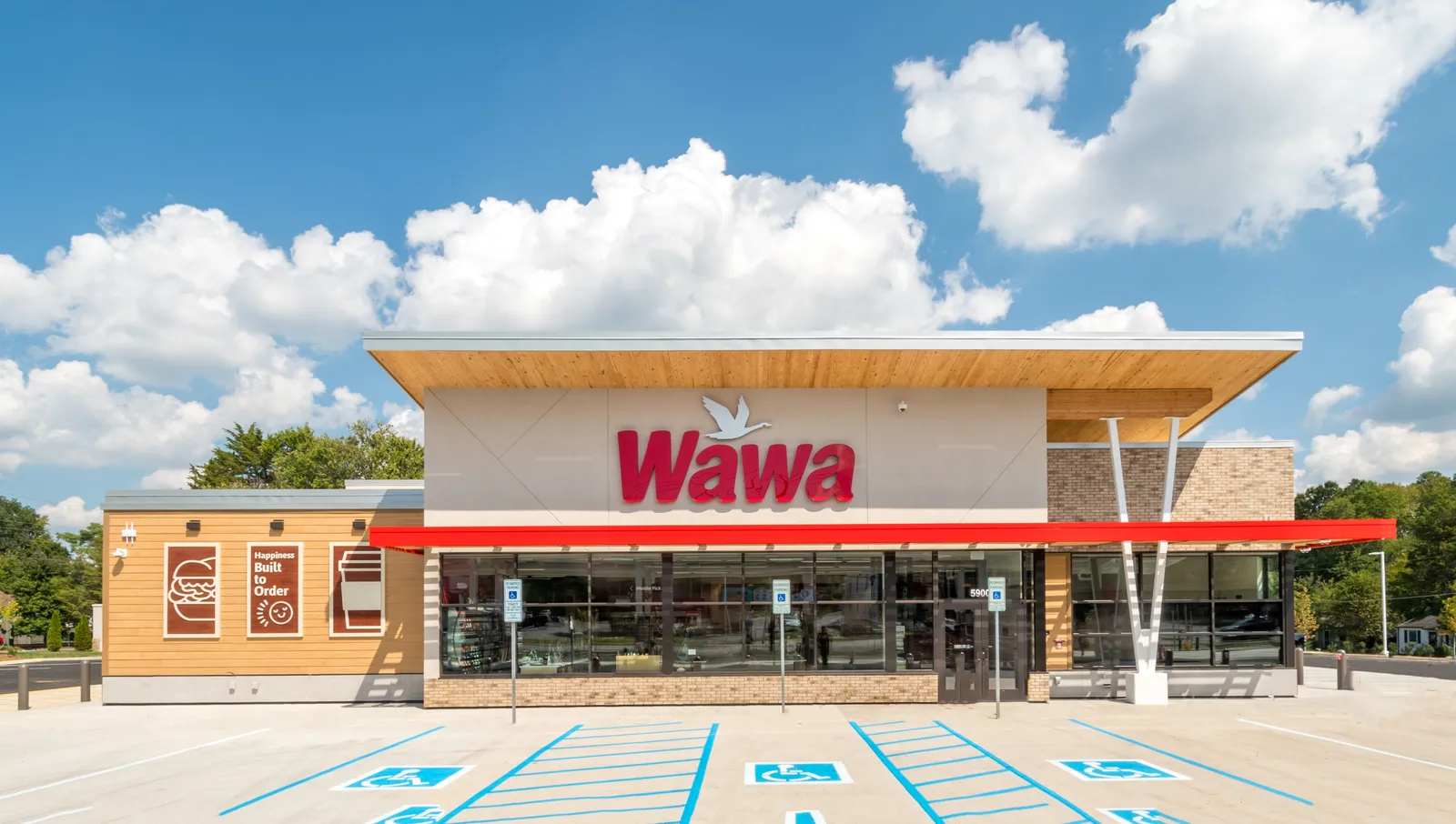
If Wawa does come to the conclusion that its pizza is subpar, it should first ensure everything in the kitchen is being executed to perfection, Salaria said. This means keeping the recipe on point for every pie and making sure kitchen staff knows how to handle orders, Salaria said.
However, if Wawa does this reset and its pizza continues to suffer, it may have to consider pulling the new item from the menu, Salaria noted.
“I think Wawa is going to be in a real pivotal situation,” she said.
Pulling a foodservice product can get costly — not just for Wawa, but for any retailer that has to do so when considering the amount of inventory they’ve invested into that item, such as ingredients and packaging, Salaria said.
She noted that retailers considering pulling a foodservice item typically do so slowly and over time instead of all at once. Salaria said she had to do this once or twice during her c-store foodservice career, which included stops at companies like GetGo Market & Cafe and Sunoco.
Still, despite having food launches that didn’t sell well, Salaria never experienced the harsh public criticism that Wawa is enduring with its pizza.
“I feel like we're in uncharted territory,” she said.
But even if Wawa has to pull its pizza at some point, it might be for the best moving forward.
“Mistakes, if they're handled correctly, can get you positive credit — and you can come out better on the other side,” she said


